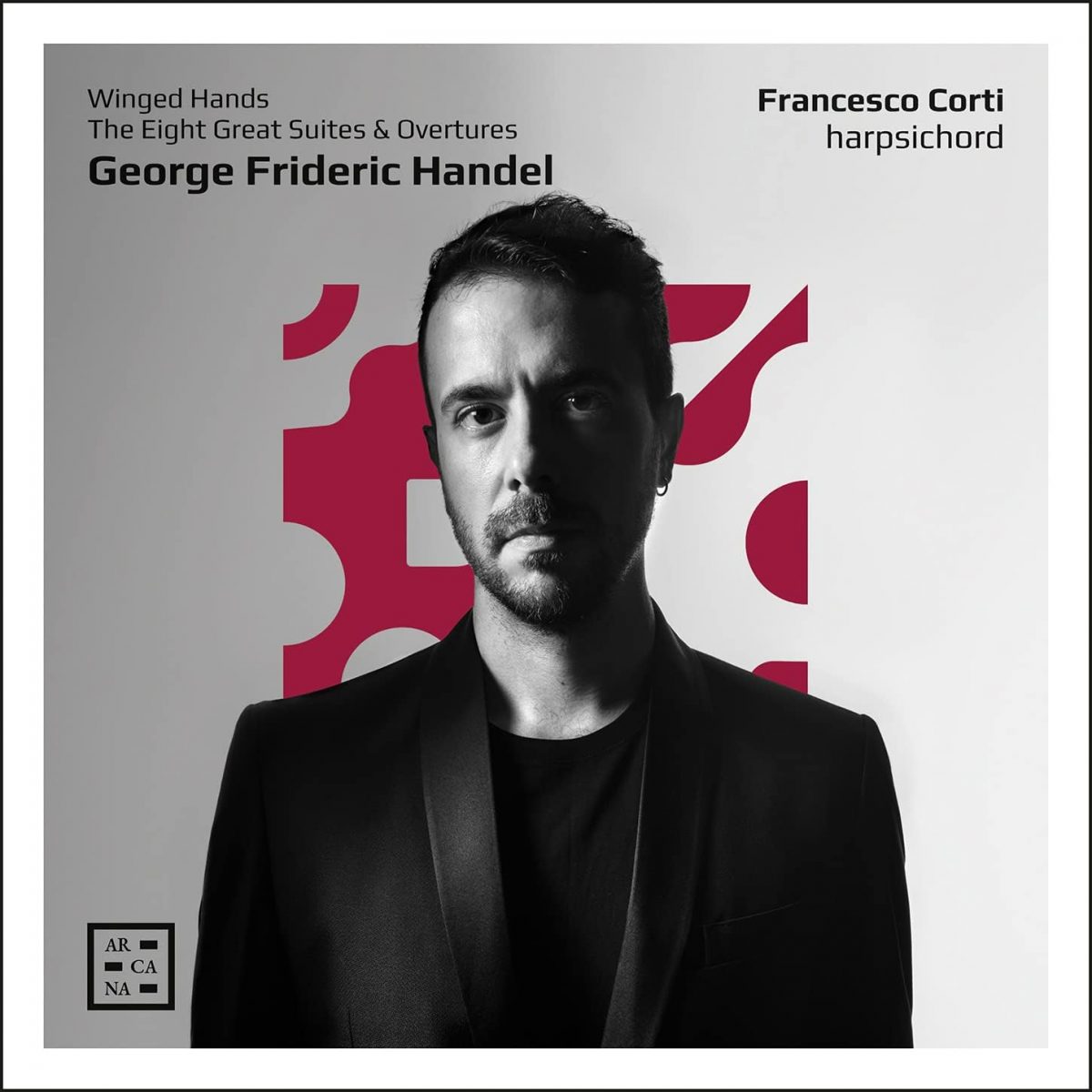Handel: The Eight Great Suites & Overtures
Francesco Corti harpsichord
147:00 (2 CDs in a card triptych)
Arcana A499
The title of this collection refers to a comment by Cardinal Benedetto Pamphili, Roman patron of the young Handel, who is reputed to have said: ‘he has wings in his right hand, indeed with that hand he does works that are more than mortal’. This has been taken as praise of Handel’s virtuosity at the keyboard, though Pamphili might also have been referring to the young composer’s expressive ability. Both traits are on full display in this fine recording by Francesco Corti. He is a player of great fluency, with a deep understanding of the styles of the period; he also shows an exceptional talent for idiomatic ornamentation. Sometimes he gets a bit carried away and I find the Gigues a bit rushed and breathless. But when the tempo is right, as it is for most of these movements, there is time for breath without ever losing the sense of the line. His right hand does indeed take flight, slightly behind the left in slower movements, and with good use of agogic accents and a fluid application of notes inégales. There is a real sense here of the impact the young Handel’s playing must have had on his listeners, a long way from other, more literal and careful, recordings of this repertoire. Played in this way, Handel’s music covers a very wide gamut of emotions and styles. I particularly liked his treatment of the introspective F minor Suite (HWV433), but all the suites have their highlights. Registration is imaginative and the harpsichord – by Andrea Restelli after Christian Vater’s Hannover 1738 original – is very well suited to this music. The recording is quite reverberant and more distant than some, mimicking a large public room rather than a smaller one. As well as the eight Suites there are arrangements of opera overtures and other movements from Radamisto, Rinaldo, Rodelinda and Teseo by Handel and William Babell. While excitingly played, I found these rather less satisfactory and often rushed. The Menuet from Rinaldo, for instance, lacks the poise and elegance which David Vickers points to in his excellent sleeve notes. That apart, this is very welcome recording indeed and can be very highly recommended.
Noel O’Regan
